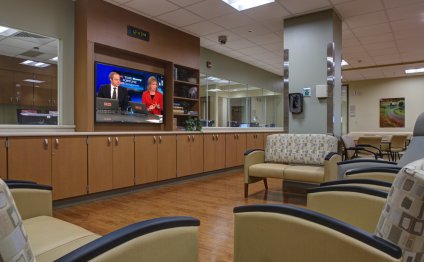
Inpatient mental Health care
 When it comes to depression treatment, is outpatient treatment or an inpatient depression treatment program best for you? That depends. Once a person has been diagnosed with depression, his or her doctor should discuss the best options for care based upon type and severity of depression symptoms. Whatever care is prescribed, however, it’s vital for people to understand that there are no quick fixes for depression. It takes time to find the level of care that works best for each person. In fact, it’s not unusual to try a number of different levels of care in order to treat depression effectively.
When it comes to depression treatment, is outpatient treatment or an inpatient depression treatment program best for you? That depends. Once a person has been diagnosed with depression, his or her doctor should discuss the best options for care based upon type and severity of depression symptoms. Whatever care is prescribed, however, it’s vital for people to understand that there are no quick fixes for depression. It takes time to find the level of care that works best for each person. In fact, it’s not unusual to try a number of different levels of care in order to treat depression effectively.
Outpatient Treatment for Depression
Many people who have depression may find a combination of outpatient treatments work at alleviating their symptoms.
It’s not unusual for antidepressant medication to be a first line depression treatment. Antidepressants help increase the levels of neurotransmitters lacking in the brains of people who have depression. There’s a long list of antidepressant medications on the market and people who have depression may have to try a variety of these drugs before they are able to find one that works to alleviate their depression. These medications often take 6 to 8 weeks to become truly effective, so patience is key when finding a medication that works.
After starting antidepressant medication, many discover that other options help them as they learn to battle this illness. For instance, an outpatient therapist is an excellent tool for helping manage feelings and issues surrounding depression. There are different types of therapists available; the most important factor in choosing an outpatient therapist is the connection between the patient and the therapist. If no connection exists, it’s important to continue searching for a therapist who can help guide and support you during your depression recovery. (How to Find A Therapist Who’s Right For You). Word of mouth, physician referrals, and the internet are excellent ways to find a therapist who specializes in depression. The cost for a therapist can range from $40-$250 per hour, depending on a variety of factors. If you have health insurance, check with your company to see if therapy is covered.
In addition to medication and outpatient therapy, there are a number of lifestyle changes men and women can use to further their depression treatment. Developing a social support system can be very important as the support of others can make a world of difference for those with depression. Depression support groups are a great option as they allow connections to others who can teach ways of managing the illness and reduce social isolation. It’s very important that people who are depressed engage in healthy habits such as eating and sleeping regularly, as improper nutrition and disrupted sleep can contribute to depression. Additionally, exercise is a fantastic mood elevator for people; men and women with depression should aim for between 30 and 60 minutes of exercise most days.
 Inpatient Treatment for Depression
Inpatient Treatment for Depression
When people are facing severe struggles with depression, an inpatient depression treatment program can be one of the best solutions to kick-start treatment. In my past experience with patients struggling with depression, I find that inpatient is the most effective treatment available. Over a period of a week to a few months, it allows an individual to dig deep and to the core. An inpatient program allows them to escape the stresses of daily life and focus entirely upon their recovery.
Many inpatient programs exist and are able to help people who have depression by offering a warm, comforting environment to begin tackling depression and controlling medication treatment. Most inpatient treatment centers combine outpatient treatment options as well as providing a space to focus fully upon depression recovery.
In an inpatient program, people with depression spend one-on-one time with a therapist in order to help develop healthy coping skills, prevent depression relapse, and discuss the roots of depression. Group therapy is a vital component to inpatient care, as it allows individuals who are facing similar challenges to work together to tackle daily problems and support one another. Families and loved ones are generally involved in depression treatment as it allows them the chance to learn ways to help and support their depressed loved one.
Depression Treatment Works
Depression is best treated through an array of self-care options, including medication management, therapy, and inpatient treatment which combines the outpatient therapy options and allows for the chance to work solely on depression recovery. No matter the level of depression, it can be managed. Those who have depression can live a normal life with the right tools and social support.
You can also find Lauren Hardy on Google+
Treatment Program: Lauren Hardy writes on behalf of Lakeview Behavioral Health, a leading inpatient program for men and women who require holistic-centered care for their depression.
(Visited 14, 270 times, 36 visits today)
TweetRELATED VIDEO



Share this Post
Related posts
Mental Health Inpatient treatment Centers
The Brattleboro Retreat s Adult Inpatient Treatment Program provides people ages 18 and older with a broad range of short-term…
Read MoreMental Health care Worker Jobs
Hospitals, clinics, and other health care facilities typically hire personnel under the title mental health worker to assist…
Read More










